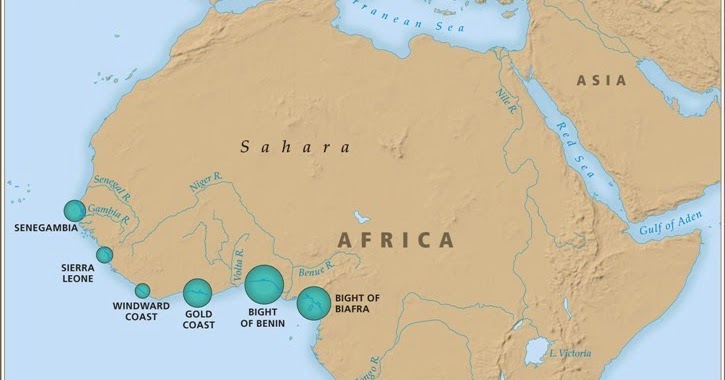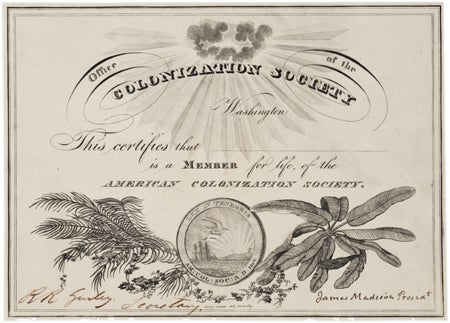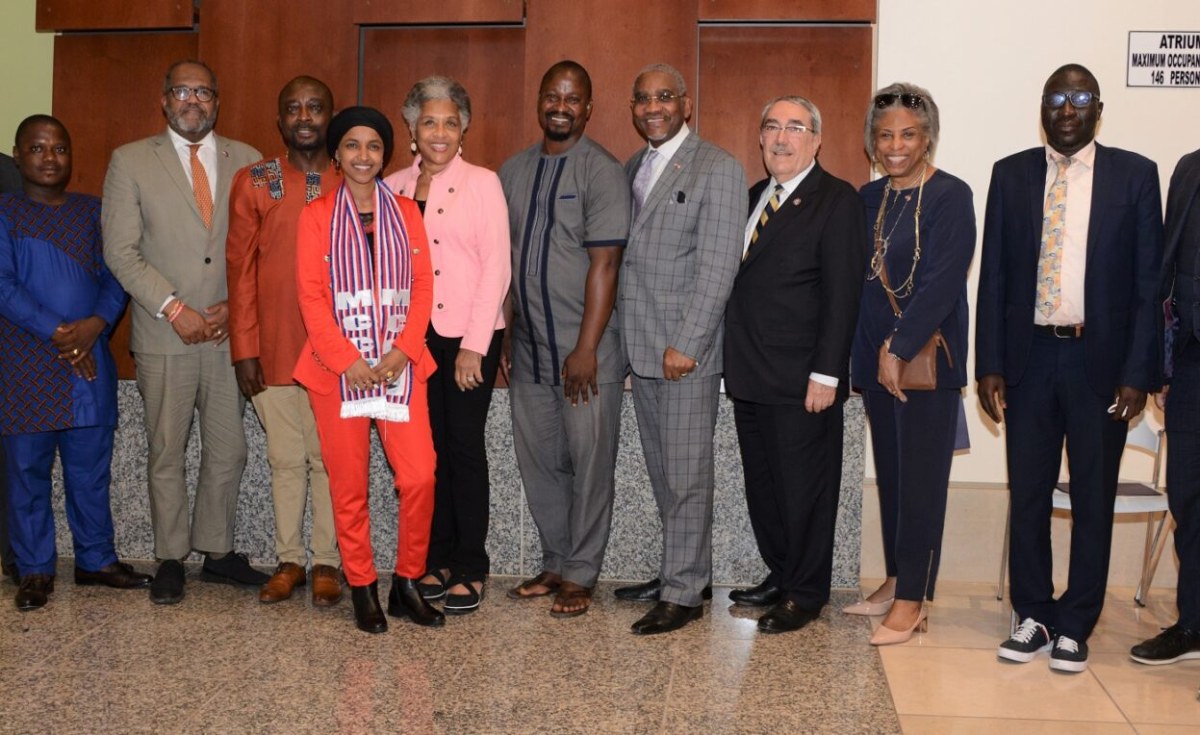get these nets
Veteran
Liberian, and Morgan State History Professor Herbert Brewer speaks and answers questions about the settling of Liberia. Video is cued to roughly the 1hr 9min mark
Liberia To Observe 200 Years Of History

Idea Becomes Reality
As the idea of a safe haven for despised free Black Americans clocks two centuries, the Historical Society of Liberia (HSL) is pleased to join the Government of Liberia in commemorating this momentous milestone. HSL’s principal raison d’être is dedicated to the proposition that knowing and preserving Liberia’s past remains a noble undertaking. On this auspicious occasion HSL deems it therefore appropriate not only to issue this Statement, but to also reaffirm a core belief of its mission, namely, to be “part of the national voice mediating historical matters.” In addition, the Statement is a concise narrative of the emigration and disembarkation of the free Blacks on January 7, 1822 on what is now Providence Island, precursor to the founding of the Republic a quarter century later in 1847.
Enslavement in the Americas
How, in the first place, did Black people (presently 14% of US population) end up in a largely White America? The answer is the transatlantic slave trade, the forced transportation of captive Africans across the Atlantic Ocean to enslavement in the Americas—i.e., North, South, and Central America, and the Caribbean (West Indies). Although approximately 12.5 million Africans were transported from eight regions between 1525 and 1866, only 10.7 million actually disembarked. The remainder perished during the harrowing voyage across the Atlantic, or the Middle Passage.
Z
Today’s Liberia and the Ivory Coast (known together as the Windward Coast) exported 287,366 or 2.2 % of the 12.5m. Of the nations that received the 10.7m, Brazil’s 45% comprised the lion’s share in contrast to the United States that absorbed 388,747 or 3.6 %. (Accessed September 20, 2021 http://slavevoyages.org/tast/assessment/estimates.faces). But in spite of the smaller import, the US African American population grew, for instance, from 1.5m in 1820 to 3.9m by 1860 (Hine et al., 2012), almost doubling Brazil’s by the mid-century (Lindsay, 2008). The increase must have been mainly natural, since the US prohibited the importation of enslaved Africans as of 1808.
Becoming Free
This growth was the source of the free Black population. But how did the enslaved become free, since the US did not abolish slavery until 1865? Because the New World’s chattel slavery stripped individuals of every shred of human dignity, enslaved people constantly looked for ways to escape what was eternal servitude. Some, for example, toiled overtime under extreme hardship, earned money, and bought their freedom. Others were fortunate to have been born free. Still others were emancipated by slaveholders, although some slaveholders tended to make deportation to Liberia a precondition for manumission. In addition, many enslaved people fled the bastion of slavery in the South for the northern states that had abolished slavery earlier, e.g., Pennsylvania (1780). However, the Fugitive Slave Act of 1850 was intended to return runaways. Notwithstanding, the free Black population did increase, for instance, from 59,000 in 1790 to 319,000 in 1830. And two decades later the group numbered 434,449 (Hine, et al. 2012).
Trepidation and formation of the ACS
This increase was a source of fear for the plantocracy—the South’s powerful and politically-connected planter class that relied on enslaved Black labor for the wealth generated from large plantations of cotton, rice, and sugarcane, among others. Planters viewed the growing number of free Blacks as a threat to their economic wellbeing. For example, the presence of free Blacks was perceived as inspiration to the mass of enslaved people (nearly 4m by 1860) to resist enslavement. An example of that resistance is the various slave uprisings: e.g., the Stono Rebellion of 1739 in South Carolina; the bloody Haitian Revolution of 1791 in which former slaves destroyed the prosperous French sugar colony of present-day Haiti, established the independent nation of Haiti in 1804 and killed French colonists; and the 1831 Nat Turner rebellion in Virginia in which planters and leaders of the rebellion were killed.
It was this trepidation that contributed to the formation of the American Colonization Society (ACS) in 1816, with the expressed goal of removal, or colonization of free Blacks, “the promoters of mischiefs,” in the words of one founding member (Staudenraus, 1980).
The ACS membership included slaveholders and prominent politicians (e.g., Bushrod Washington, was founding president of the ACS, associate justice of US Supreme Court, nephew of US first president George Washington, and reportedly a slaveholder; Bushrod Island in Monrovia is named in his honor). Indeed, some founders, including Rev. Robert S. Finley and Francis Scott Key, appeared genuinely moved by the lack of equality for free Blacks in the US. They seemed convinced that only in Africa could these despised free Blacks attain equality and dignity. Yet, in spite of this humanitarian sentiment, the plantocracy hardly concealed its motive: “Colonization,” warned another ACS associate, “was for free Negroes, not slaves” (Staudenraus, 1980).
Last edited:





